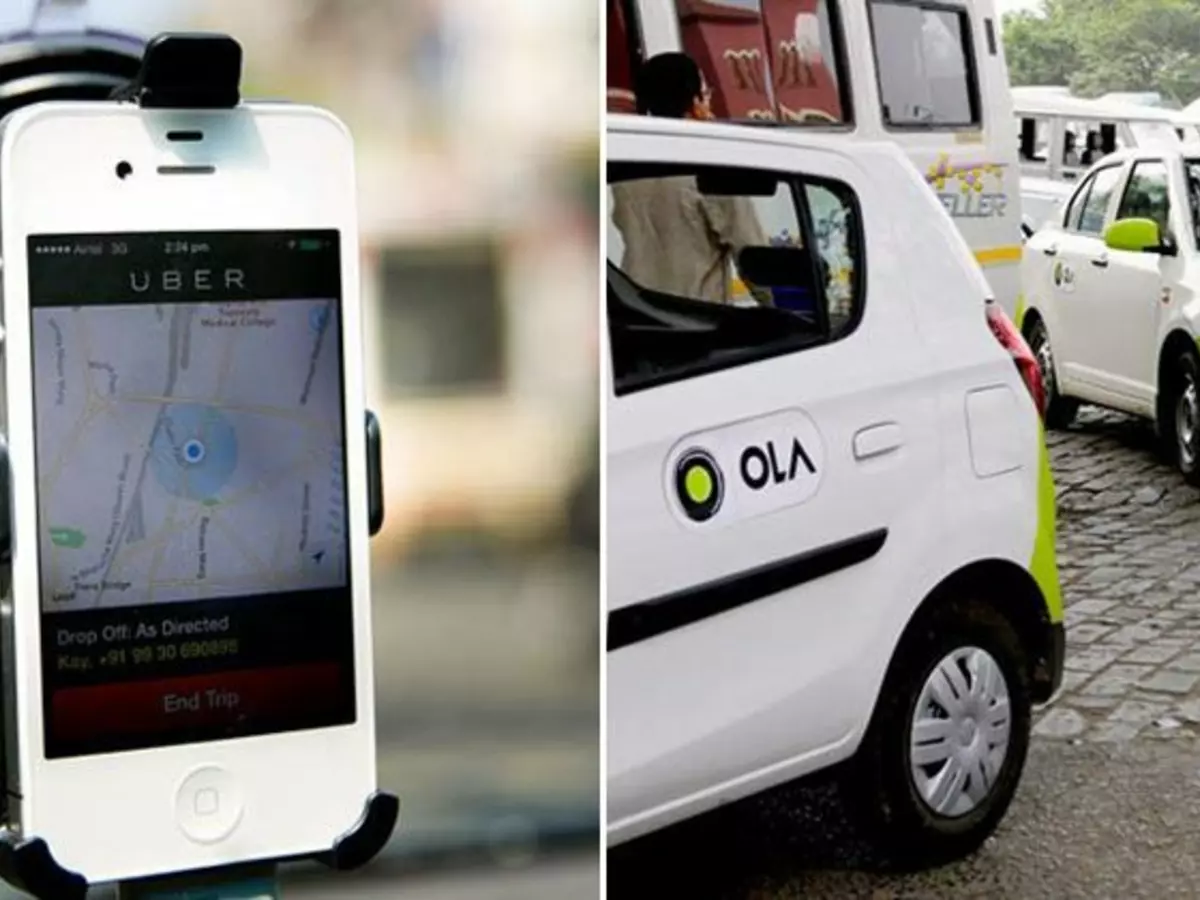Ola And Uber Drivers Can't Refuse Ride Anymore, Will Be Fined Rs 25,000 According To New Rules
New policy for cab aggregators in the works by Delhi government. Policy promises to cap surge pricing and ensure several safety measures. Policy prohibits drivers from refusing a passenger or discriminating on basis of gender race religion caste disability etc.

Booked a cab through your mobile app but the driver refused to come at the last moment? Refusal by cabs of app-based aggregators, a pet peeve of Delhiites, could soon be a thing of the past with the city government on the verge of bringing in a regulatory policy that provides for a Rs 25,000 fine for such violations.
The policy promises to cap surge pricing and ensure several safety measures. According to the draft rules, the aggregator shall have to file a police complaint if a case of molestation or misconduct is reported to it by the passenger; failure to do so will attract a fine of Rs 1 lakh .
The draft ¡°Licencing and Regulation of App-based Aggregators Rules, 2017¡± and the City Taxi Scheme, 2017 are being vetted by a panel headed by PWD minister S Jain. The panel is expected to finalise the policies soon and send them to the Delhi cabinet for approval.
¡°Cab services are an important means of transportation in a growing city and a large number of commuters are now using taxis through app-based aggregators. There is an urgent need to frame rules to regulate the operation of these cab services,¡± said a transport department official.
Once the rules are implemented, app-based aggregators would have to get a licence from the department to operate in Delhi. They would have to operate a 24x7 call centre and also share live GPS data of all cabs with the transport department¡¯s control centre. NCR taxis can be used by aggregators provided their GPS feed is given to transport department¡¯s control centre.
On surge pricing, aggregators would have to abide by both maximum and minimum fares to be fixed by the transport department or face a fine of Rs 25,000 for each violation.
Though the new policy doesn¡¯t prohibit shared rides, it says cabs would have to ply as contract carriage vehicles, which means they can¡¯t pick up and drop different passengers from multiple points.
Ola And Uber Drivers Can't Refuse Ride Anymore, Will Be Fined Rs 25,000 According To New Rules

PTI
A regulatory policy for cab aggregators in the works by the government promises not only to put a cap on surge pricing, but also ensure a host of safety measures for commuters. A decision on pool rides would be taken by the high powered committee.
The policy prohibits drivers from refusing a passenger or discriminating on the basis of gender, race, religion, caste, disability etc. Keeping in view the increasing number of complaints regarding safety of commuters, particularly women, the draft policy proposes a host of measures.
It seeks to make it mandatory for the mobile application of the aggregator to introduce new features. These include enabling the passenger to share their location and cab details with a minimum two persons through the app. The app also must have a ¡®panic button¡¯, which when pressed, will immediately alert the local police.

AP
A clear and visible picture of the driver and description of vehicle has also to be provided via the app and the cab should have a GPS display on a screen not smaller than six inches that will show real time location of the vehicle. The policy also recommends that the app should have features like a firewall to protect personal data of passengers.
Any person convicted, within the past seven years, of driving under the influence of drugs or alcohol, or convicted at any time for any cognizable offence, will not be permitted to drive. The policy advises aggregators to encourage more women drivers to join their platform.
While the licensing policy deals with app-based cabs, the City taxi scheme, 2017, deals with other taxis, primarily the ¡°kaali peeli¡± ones. The scheme proposes that all taxis must be air-conditioned and should have two categories ¨C economy and luxury ¨C based on the vehicles¡¯ length (smaller or longer than four metres). The scheme proposes a colour scheme of canary yellow for economy taxis and green for luxury taxis. The famous kaali peeli taxis can retain their colour scheme of black and yellow till the end of life of the vehicle.

PTI
The taxis will have to install digital fare metres on the front panel and LCD panels on the roof, which will be turned green when available and red when occupied. The taxis must run on clean fuel such as CNG, LPG or electric, and have functional GPS devices with the feed being shared with transport department¡¯s control centre.
The taxi schemes bars refusal to ply, tinted glasses or curtains, central locking and shared rides. The taxis also must have first-aid boxes and fire extinguishers.
A revamp of cab rules has been one of the biggest demands of commuters considering that these taxi services are an important means of transportation in a growing city and its suburbs. A large number of people are now using taxis through app-based aggregators. There is an urgent need to frame rules, a transport official conceded.
